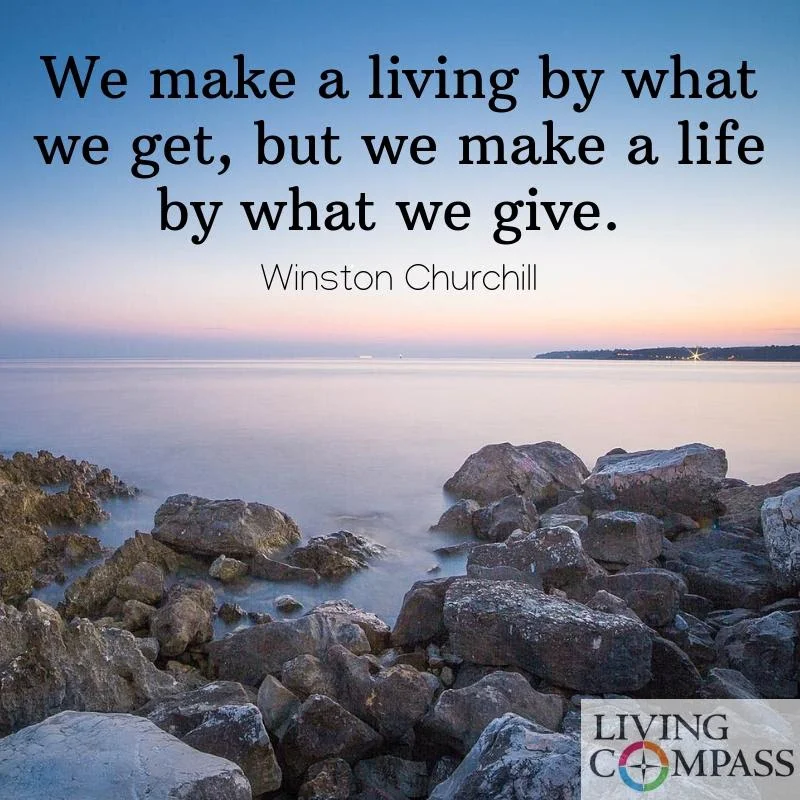A New Year's Gift
As we transition from Christmas into a new year, it is natural for each of us to take some time to reflect on what we are most grateful for regarding the year that has just passed, and what we wish to more intentional about in the year to come. One of the defining activities of the Christmas season is the giving and receiving of gifts. And, of course, one of the defining activities of the beginning of a new year is the making of resolutions. As I hear people talk about the former activity--the giving and receiving of gifts--I often sense great joy in what people share about the gifts they give to others. As I hear people talk about the latter activity, making New Year's resolutions, I typically sense a very different kind of energy, one of the underlying feelings of self-criticism, anxiety, and a long list of “shoulds,”things people feel they need to be doing or changing about themselves or their lives.
So I have a suggestion. What if we were to bring the same joy and positive energy that we feel about the giving and receiving of gifts to the setting of our resolutions for the new year? What if we were to think about our New Year's resolutions as gifts that we are choosing to give to ourselves?
When you or I want to give a lovely gift to someone we care about, we first take some time to think about what that person would truly want. What would make them truly happy? The better we know the person, the easier it is for us to choose just the right gift, one that we know will please them. What we desire most for the recipient is that our gift will bring them a great sense of joy. We certainly wouldn't give a gift as a hint that there is a change we think the person should make, hoping that our gift will prompt the change to happen.
So if our resolutions or New Year's commitments are also, in fact, presents to ourselves, we would not want to have that attitude about this gift to ourselves either. Instead, we can wonder what new commitment could help us be who we really want to be, what new commitment would please us or make us truly happy, and what would give us a new sense of joy.
With this mindset in mind, I have decided to give myself the gift of three New Year's resolutions for 2019. First, I have signed up to sign up for a very challenging bike race that will take place next August. Second, I have decided to make playing the piano on a regular basis a priority. And third, I am recommitting to a regular morning practice of prayer and meditation. Doing each of these activities is a gift I can give to myself. As I approach this new year, I realize that I sometimes tend to work more than is good for me, and thus I need more rest and play in my life, which the biking and playing the piano will help support. And any extra time I spend nurturing my spiritual life is always one of the greatest gifts I can give to myself. I don't feel one ounce of “should” or “have to” about any of these resolutions, instead, they feel life-giving, and that is the point of these resolutions.
You know yourself better than anyone. You know better than anyone what having more of or less of in your life right now would make you happier and more joyful. Why not give yourself the gift of a New Year's resolution that will help increase your sense of balance and wholeness, and thus your overall sense of well-being?
And there is one important benefit to approaching the setting of a resolution as a gift to yourself rather than as a “should,” and that is in the long run, there is a much better chance that you will stay with your positive resolution.
Subscribe Now to Weekly Words of Wellness:
Click the button below to signup for the e-mail version of Weekly Words of Wellness. This weekly article can be shared with your community electronically and/or used for group discussion.
You can unsubscribe at any time.




